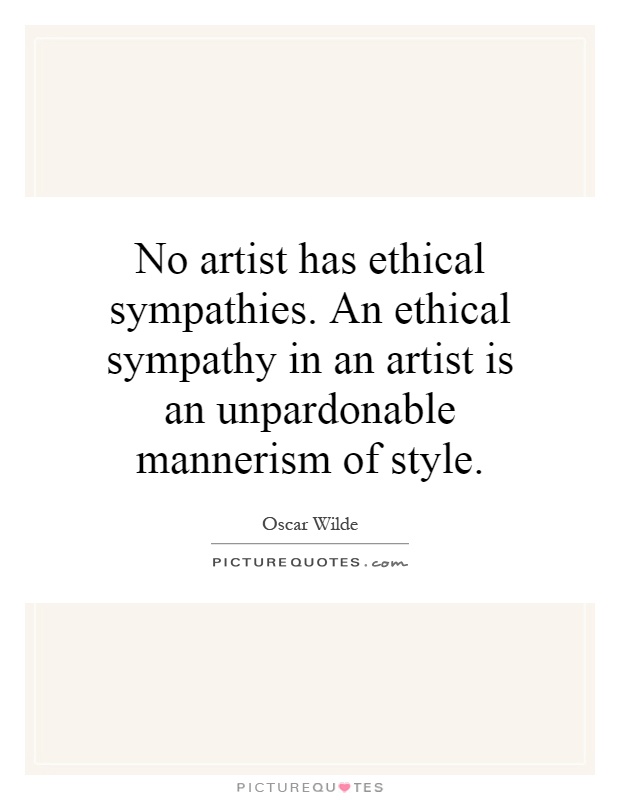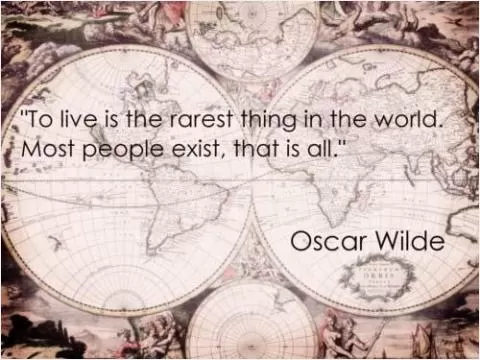No artist has ethical sympathies. An ethical sympathy in an artist is an unpardonable mannerism of style

No artist has ethical sympathies. An ethical sympathy in an artist is an unpardonable mannerism of style
Oscar Wilde, the renowned Irish playwright, novelist, and poet, was known for his wit, charm, and controversial views on art and society. One of his most famous quotes, "No artist has ethical sympathies. An ethical sympathy in an artist is an unpardonable mannerism of style," reflects his belief that art should be free from moral constraints and should exist purely for its own sake.Wilde believed that art should not be limited by ethical considerations or societal norms. He argued that artists should be free to explore and express their creativity without being bound by moral judgments. In his view, art should be a reflection of the artist's individuality and imagination, rather than a tool for promoting moral values or social causes.
Wilde's own life and work exemplified this philosophy. He was known for his flamboyant personality, unconventional lifestyle, and provocative writings that challenged the Victorian era's strict moral codes. His most famous works, such as "The Picture of Dorian Gray" and "The Importance of Being Earnest," explore themes of beauty, decadence, and the nature of art itself.












 Friendship Quotes
Friendship Quotes Love Quotes
Love Quotes Life Quotes
Life Quotes Funny Quotes
Funny Quotes Motivational Quotes
Motivational Quotes Inspirational Quotes
Inspirational Quotes